

Tao Te Ching
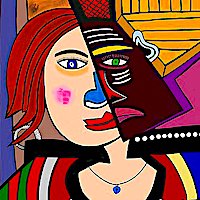
Edmonde Bizelli
Artists Lineage
Lame Deer said that “Artists are the Indians of the white world.“ That understanding brings the connotation of being in touch with the natural world, believing in experience over dogma, of innovating rather than closely following tradition. In modern times, we equate artists with producing fine art; but, for most of history, “artist” was more closely associated with “artisan” and emphasized “industrial arts,” “arts and crafts,” the arts of medicine, teaching, metallurgy, and agriculture. In the Platonic dialogues, “art” describes a broad range of everyday skills and useful techniques. Lucretius attributes civilization’s progress to the development of a wide diversity of arts and sciences. The spread of history recognizes the powerful and transformative influence of artists: some—in the lineage of Plato and Aristotle—believing the state should tightly control because this force is so compelling; some—in the lineage of Milton and Mill—advocating complete freedom from political or religious control so that artists can fulfill their role of evolutionary catalyst.
People (124)

Leizu 嫘祖 (Léi Zǔ or Xi Lingshi)
27th century BCE
Legendary Chinese empress, inventor of silk
A legendary Chinese empress and wife of the Yellow Emperor, Huangdi, Leizu is credited with discovering silkworms when she was having tea and a cocoon fell into her tea. She then learned how to make silk, invented the silk loom, and taught women how to breed silkworms and weave silk fabrics. She was instrumental in helping her husband establish one of the world’s greatest golden ages. China maintained a monopoly on silk production for thousands years and it only spread to Japan c. 300 CE, to the Byzantine empire in 522 CE, and not to Western Europe until the 16th century.
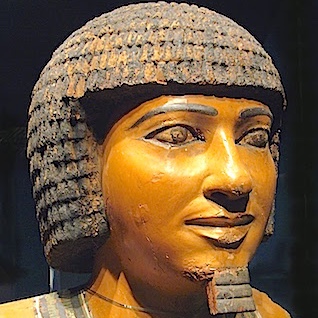
Imhotep
2650 – 2600 BCE
First Western architect, engineer and physician
Considered the first architect, engineer and physician of early Western history, Imhotep invented tools, made great sculptures, and built the first Egyptian pyramids. High Priest, Chancellor, Chief Doctor and Carpenter; he was also revered as a poet and philosopher and was one of the few figures in history born a commoner and deified after his death. "Father of Medicine,” formulator of wise sayings, patron saint of scribes; his legacy and influence helped form the beginnings of ancient Greek culture. His fame continues in modern times disguised in movies, TV shows, comics and video games.
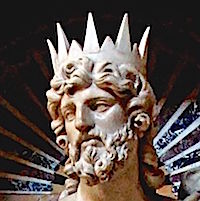
King David
1000 – 920 BCE
"The baffled king composing Hallelujah!"
King David דָּוִד (fl. c. 1000 BCE)
Possibly fictional but in any case powerful symbol of an ideal king and political leader, David. a shepherd, began his public life as a musician with a "secret chord" that chased away an evil spirit possessing King Saul. Leonard Cohen described him as “the baffled king composing Hallelujah!’ and Bonoas ‘the first God heckler’ and his shouting of 'Why hast thou forsaken me?’ as ‘the beginning of the blues.’ Israel's greatest poet and warrior, famous for success in his defeat of the giant, Goliath; he also became infamous for his infatuation with Bathsheba and the corrupting influence of forbidden pleasure that led to adultery and murder but also to the birth of Solomon.
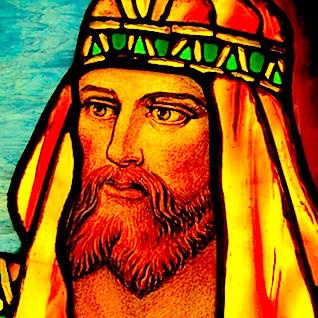
Solomon (Jedidiah)
990 – 931 BCE
Magician, exorcist, great prophet of Judaism and Islam
Wealthy and wise king of Israel, son of David, builder of the First Temple in Jerusalem; Solomon – known as a great prophet in both Judaism and Islam, a "Righteous Prophet and King" in the Eastern Orthodox Church, and a great hero in Freemasonry – is not without his detractors for following foreign traditions and marrying foreign wives including a Pharaoh's daughter and Naamah, the only foreigner Queens Mother of Israel or Judah. His openness, wisdom and refusal to fixate on dogmatic orthodoxy invites him to this list. His renown as magician and exorcist include famous legends like the One Thousand and One Nights’ genie sealed in a bottle with his Seal.

Homer
850 BCE - ?
Primogenitor of Western culture
Called by Plato the “first teacher” and "leader of Greek culture,” Homer spread an immense influence over all Western culture. A blind bard prophet, his books the Iliad and Odyssey represent the first European literature as well as one of the main influences that shaped Western culture. The “Greek Bible,” these books taught the best behavior for almost any situation with true and timeless images of human goodness and wisdom. Describing the most enduring legends known to the Western world, these universal themes inspire and enlighten.
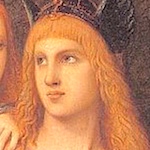
Hesiod
846 – 777 BCE
“History’s first economist”
Called “history’s first economist,” farm hand, singer, epic poet of the people; Hesiod used his poetry to paint and establish religious customs, Greek mythology, good farming practices, and a foundation for the poor to overturn the injustices and inequality of the kings and aristocracy. He protested against injustice, furthered the understanding of astronomy and time keeping, the economics of sea trade, and gave meaningfulness to creativity and hard work. While Homer extolled the hero, the rich and powerful; Hesiod championed the working classes and the common person (though not women).
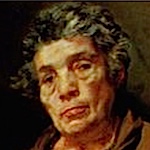
Aesop
620 – 546 BCE
Hero of the oppressed and downtrodden
Known as a strikingly ugly slave who by his cleverness became free and an adviser to kings and city-states, some historians believe Aesop was a black from Ethiopia and became Uncle Remus in the Cherokee, Algonquin and American slave tradition of Br'er Rabbit. In many cultures he symbolizes a hero of the oppressed, disadvantaged and downtrodden who with wisdom and understanding outsmarts and wins over the rich and powerful. Famous throughout the world - from China to Africa, from Europe to Japan, from ancient times until today; Aesop’s fables and sayings remain a profound influence of goodness and insight.

Sappho
612 – 570 BCE
“The Poetess” and most famous Greek woman
The most beautiful singer of her age, a political force when only 19, one of the great “Nine Lyric Poets” of ancient Greece, called by Socrates, “The Beautiful,” by Plato the Tenth Muse, and “the Poetess” by all the Greek world; Sappho is the most famous Greek woman. In fear of her pen, politicians banished her twice and her poetry continued to inflame autocratic leaders for centuries – even Medieval Church leaders in Rome and Constantinople tried to burn all her 9 volumes of poetry in 1073 and remaining scraps of these weren’t found until 1897, some not until 2014. She started history’s first “finishing school” for girls and lived “laughing love’s low laughter… lost in the love trance."
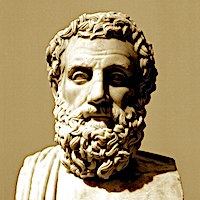
Aeschylus Αἰσχύλος
525 – 455 BCE
The Father of Tragedy
Although Aeschylus was the first to present plays as trilogies, the initiator of many theatrical innovations, and the “father of tragedy;” his Greek epitaph didn’t mention his plays, only his military roles. Although not fully acknowledged in ancient Greece, his influence has seeped through history and into the present as an inspiration for Wagner, Milton, the Romantics, Eugene O’Neill, and Robert F. Kennedy who claimed him as his favorite poet who he quoted in a speech to African Americans after Martin Luther King’s assassination. This same quote—“to tame the savageness of man and make gentle the life of this world”— became inscribed on Kennedy’s memorial after his own assassination. Aeschylus’ costumes and performances were so vivid that they were said to cause children to faint, men to urinate in their robes, and pregnant women to go into labo
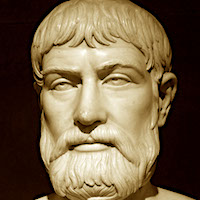
Pindar Πίνδαρος
522 – 443 BCE
Archetype of poetry
One of the always-praised but almost never-read writers, Pindar wasn’t even popular during his lifetime though he was sought out and paid high sums for eulogies. Although only a small fragment of his odes remain and none of his music and dance displays; enough of the creative artistry and complex, beautiful structures survive to give Pindar an immortal place in world literature. He became popular again during the Byzantine Era and again when his style was emulated for the revived 1896 Olympic Games, the Athens Olympics in 2004, and the London Olympics in 2012. Horace thought anyone trying to imitate Pindar would be like Icarus, sure to fail. The splendor of his imagery, imagination, and style have brought some modern scholars to regard his work as “an archetype of poetry.”
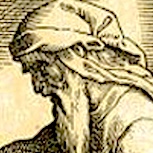
Koheleth
c. 330–180 BCE
Author of the most mystical, the most in harmony with the non-thought lineage part of the Bible, Koheleth anonymously wrote Ecclesiastes, part of the Hebrew Bible as well as one of the “canonical Wisdom Books” recognized by most Christian denominations. It focuses on the meaning of life, the best way to live, the futility of materialism and wisdom as the highest value. Thomas Wolfe called it “the noblest, the wisest, and the most powerful expression of man's life upon this earth—and also the highest flower of poetry, eloquence, and truth.” Koheleth himself remained anonymous and obscure, not taking credit for this great work.
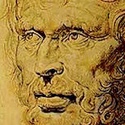
Lucretius (Titus Carus)
99 – 55 BCE
The greatest Western philosophical poet, a complete evolutionist, writer of the “loftiest poetry that any age has known” and the “most marvelous performance in all antique literature” (Durant); Lucretius described religion, the universe, and medicine from a rational point of view without superstition, faith, or dogma. An Epicurean with allegiance to only Venus and the power of love, he left behind all other gods and proposed a scientific understanding of the world including atomic theory and evolution. A huge influence on ancient times, people like Virgil and Horace; he also inspired Enlightenment era people, humanism, Thomas Jefferson and modern psychology.
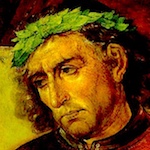
Virgil (Publius Vergilius Maro)
70 – 19 BCE
“The most lovable of Romans” and its greatest poet, advocate/inspiration/teacher for small farmers, Dante's guide through hell and purgatory, considered a great magician, seer, and saint as well as the embodiment of human knowledge and experience; Virgil began life as a poor farmer and once had to swim for his life to escape soldiers. Given patronage by Augustus he wrote the Aeneid that became the Roman national epic and standard text for school curricula after Augustus refused Virgil’s dying wish to have it burned. For hundreds of years his poems were opened at random as an oracle for insight into uncertainty and to solve problems.

Tao Yuanming
365 – 427 CE
Greatest Chinese poet during the Six Dynasties period (220 - 589 CE), one of the biggest poetic influences on Zen and Beat poetry, and in a small group of history’s best poets; stories say Tao Yuanming drained rivers of wine with friends in glades on moonlit nights celebrating the miracle and wonder of moment-to-moment perception. Military/government career drop out, back-to-the-land champion, discoverer of Peach Blossom Spring; he didn’t follow in the steps of any religion, didn’t do any of the recommended practices; he reveled in the fulness of here-and-now working in his garden, reading books, playing the zither, chopping wood and carrying water.
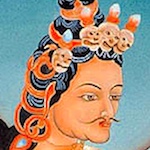
Saraha
8th century CE
Earliest Mahasiddha, founding father of the Buddhist Vajrayana and Mahamudra tradition; Saraha was expelled from a monastery for drinking alcohol, found a young low caste bride, became a maker of arrows, and went on to write the main Mahamudra meditation text and become a great yogi and master song writer. Like Lao Tzu, he followed the same “Inborn Natural Way” and began the lineage which descended through time to Tilopa, Naropa, Marpa, Milareapa and now to the Gyalwang Karmapa.

Li Bai 李白 (Li Bo)
701 – 762 CE
The greatest Chinese poet so widely respected that a crater on the planet Mercury was named after him, that he would appear as a character in books written by Hermann Hesse, John Steinbeck, Guy Gabriel Kay, Simon Elegant, Ursula Le Guin, and Philip K. Dick.. Immensely influential during his own time as well as subsequent generations in China, his influence extends to American Imagist and Modernist poetry through poets like Ezra Pound, Charles Bukowski, and Derek Walcott. Mastering Confucius at 10, he began writing poetry still famous today. At 12 he went to live in the mountains studying and writing, returned and wandered, married but but didn't make enough money so his wife left with their children. He became a favorite of the emperor, was rejected, wandered again, was imprisoned, sentenced to death, released to wander again, and legended to drunkenly die in a river while trying to embrace the moon's reflection.
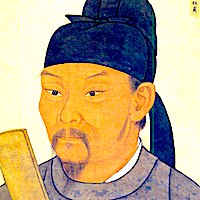
Du Fu 杜甫 杜甫
712 – 770 CE
Though Li Bai in the West is most often considered China's greatest poet, in the East, that honor most often falls to Du Fu, "the Chinese Shakespeare." Historian, sage, and compared to Milton, Burns, and Wordsworth; Du Fu failed the Chinese examinations for public office although the subject was poetry but became one of China's most influential writers. A close friend and traveling companion of Li Bai during a time of intense political change, his fortunes rose and fell from the highest honors to the depths of misery finally to be robbed of the straw in his bed while he was too weak to resist. In Japan considered the "Saint of Poetry" and the major influence on the greatest haiku poet, Matsuo Bashō; Du Fu excelled at reconciling opposites, considered "everything in this world is poetry," and became one of the greatest writers in any language.

Han Shan (Cold Mountain)
c. 730-850 CE
Claimed by Buddhists as a Buddhist, by Taoists as a Taoist; Han Shan poked fun at both and living beyond any narrow categories like these, through his poems communicated a universal wisdom and truth. Not attached or attracted to honor and gain, he laughed at offered high positions and wealth. The favorite poet of everyone from Wang Anshi (1021-1086), one of China’s most famous prime ministers to Jack Kerouac who in 1958 dedicated his book Dharma Bums to him, Han Shan’s poems express complete spontaneity, total indifference to praise and blame, and continual realization of pure consciousness in the simple, ordinary details of life.
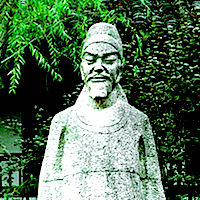
Liú Yǔxī 刘禹锡
772 – 842 CE
"Mad old man poet," politician, and philosopher
Poet, philosopher, writer; Liu Yuxi grew up in the political chaos of the time and transitioned from tutor to an heir apparent, secretary to a military governor, a high political post of Investigating Censor, to friend of many literary giants of the Tang Dynasty. He was banished, recalled, banished again because of a satirical poem, then made a provincial governor, and later governor of Suzhou. Along with famous poet/governor Bai Juyi he was known as one of the “two mad old men.” His poetry became some of the most famous throughout China, the other East Asian countries, and now—through insightful translations like Red Pine’s—in the West as well.
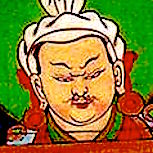
Vinapa
8th century CE
Only son of a King, so obsessed with music he would barely stop for food, Vinapa refused to learn about politics and leadership, would only listen to and play music. In a desperate attempt to win his attention, his parents found the great yogin Buddhapa to teach him. His attention was won but the master gave him a music meditation practice saying, “Free yourself of all duality between the sound itself and what your mind perceives. Without concept or judgement, contemplate only pure sound.” Vinapa became enlightened and a great Mahasiddha teaching and benefiting countless beings.

Ziryab أبو الحسن علي ابن نافع, زریاب (Abu l-Hasan, “Blackbird”)
789 – 857 CE
Singer, poet, polymath, freed slave, teacher, and one of the greatest influences on world culture; Ziryab’s name is almost unknown in most of the world although the traditions and styles he initiated are commonplace. He invented and popularized the early form of toothpaste, the three-course meal, asparagus, the use of tablecloths, wearing hair in bangs, and using glass containers for drinks. Founder of the 500-year Andalusian music tradition, he laid the early groundwork for classic Spanish music, revolutionized the musical instrument design that became the lute, and created a musical style that influenced European minstrels, troubadours, and the course of European music.

Lü Dongbin 呂洞賓 (Lü Tung-Pin)
796 CE -
Scholar and poet, de facto leader of the 8 Immortals, founder of the School of the Golden Elixir of Life and the internal alchemy tradition; Lu Dongbin is named in famous Chinese proverbs and wrote the Secret of the Golden Flower. An easy-to-anger, prolific poet and ladies man prone to bouts of drunkenness; he’s considered an emanation of the Bodhisattva Guanyin (Avalokiteśvara) dedicated to helping people realize wisdom and learn the Tao. Continually popular in folklore, he was portrayed by Jackie Chan in the movie The Forbidden Kingdom.

Kanhapa ནག་པོ་པ། ("The Dark-Skinned One")
9th Century CE
Mahasiddha #17
A founder of the Nath lineages, guru to many famous gurus, great poet and singer but proud, easy-to-anger, aggressive and arrogant; Kanhapa’s story doesn’t easily fit into a list of enlightened teachers. He successively achieved levels of realization but didn’t listen to his spiritual guides, disobeyed his guru, got proud, and then suffered a downfalls. This continued until he aggressively stole some fruit, got into a fight with the dakini who owned it, and then was killed by her in retaliation. In the Crazy Wisdom, Sacred Clown, Trickster tradition; Kanhapa shows by bad example how not to behave, demonstrates deflating the ego of spiritual materialism, and shocks students out of their complacency.
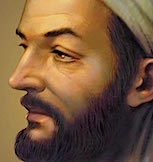
Avicenna أبو علي الحسين بن عبد الله بن الحسن بن علي بن سينا (Ibn-Sīnā)
980 – 1037 CE
Persian polymath, spur to the Islamic Golden Age, poet, doctor, scientist, philosopher and one of the most significant thinkers and writers of his time; Avicenna wrote over 450 books one of which became the standard medical text for European universities up until as late as 1650. With influence from Plato and Aristotle, he clarified the distinction between the words and the sense, taught a spiritual path beyond motivations of hope and fear, reconciled the conflict between reason and faith, and his works according to Will Durant, “mark the apex of medieval thought and constitute one of the major syntheses in the history of the mind.”
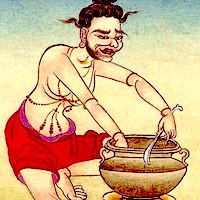
Kumbharipa ཀུམྦྷ་རི་པ། (“The Eternal Potter”)
10th century CE
Mahasiddha #63
Kumbharipa was a potter bored into despair by the repetition and meaningless tedium of his profession of making pottery. Deeply depressed and on the verge of suicide, he met a teacher who pointed out the universal nature of his unhappiness and suffering. Pointing out the symbolic understanding of the pottery wheel being like the wheel of life, our passions and thoughts being like the clay, and 6 pots being like the 6 realms; Kumbharipa practiced this insight and became enlightened entering a Lao Tzu type wu wei state with the “potter’s wheel spinning by itself and pots spring from is a joy sprang from this potter’s heart.” Mahasiddha #63
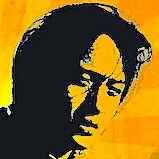
Milarepa རྗེ་བཙུན་མི་ལ་རས་པ།
1052 – 1135 CE
Black magician enemy-killing sorcerer transformed into a great Tibetan folk hero, poet, singer-songwriter and saint; Milarepa always refuted any hero worship or deification stressing his humble background and realization that anyone could achieve. Overcoming powerful, psychological demons, he left far behind fame, fortune, pleasure, power, even companionship and after many years of solitary meditation wandered throughout Tibet teaching and leading students to illuminating, egoless, complete sanity beyond the corruptions of a belief in a separate self. Profound without pretense, ageless because authentic, livable because so simple; Milarepa’s teaching and inspiration continues.

Hildegard of Bingen
1098 – 1179 CE
Circumventing her times’ strong prejudice and bans against women's social, artistic and theological participation, Hildegard became a famous writer, composer, botanist, philosopher, visionary, Christian mystic and the founder of scientific natural history in Germany. The first Westerner credited with describing the healing powers of food and corresponding with the political, religious, and scientific leaders of her day (popes, emperors, saints and scientists), she used her influence to combat corruption, promote spiritual insight, holistic healing, the arts, and women’s role in the world
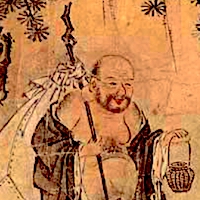
Kakuan Shien 廓庵師遠 (Kuo-an Shih-yuan, Kuòān Shīyuǎn )
1100 – 1200 CE
Most popular Ten Bulls artist/poet
Chan Buddhist monk, artist, and poet; Kakuan expanded on an old Taoist story that used an ox and herding as symbols for the spiritual path. He added two new pictures to a previous version that had 8 and published his new verses and pictures in c, 1178. These new additions emphasized returning to the world and linking closely realization with everyday life. Dramatically symbolizing the path to enlightenment, his rendition became the most popular then and continues to hold that position today in spite of many newer attempts. Exemplifying the close connection between Taoism and Zen, his Ten Bulls became closely identified with Zen in general as well as a continual source of inspiration for students.
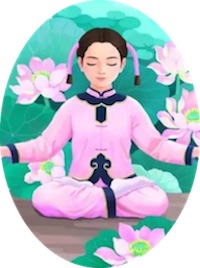
Sun Bu'er
1119 – 1182 CE
Sun Bu'er 孫不二 (1119 – 1182)
Taoist priestess, one of the Seven Masters of Quanzhen, mother of 3, beautiful, intelligent, wealthy, and known as “Clear and Calm Free Human;” Sun Bu'er founded the Purity and Tranquility School and wrote many famous poems and secret Taoist texts. She developed a “science of essence” concerned with psychologically going beyond the influence of both inherited personality and learned conditioning as well as a “science of life” developing ways to increase health and energy. Destroying her beauty to prevent male attack, she became the only woman included in the famous Taoist “Seven Perfected,” and through the ages a role model and inspiration for women following a spiritual path.

Ibn' Arabi Ibn 'Arabi
1165 – 1240 CE
“the foremost spiritual leader in Muslim history”
Islamic Scholar, Sufi mystic, poet, philosopher and genuine saint; Ibn ‘Arabi was born during and at the center of a time and place where Christian, Jewish, and Islamic thought were cross-pollinating with a rediscovery of ancient Greek and Roman wisdom. In over 350 literary works including some of the finest poetry in the Arabic language, he influenced Islam away from rigid orthodoxy toward a universal understanding that appreciates each person’s unique and personal spiritual path above doctrine and belief. A polarizing figure in Muslim culture, he’s known as either “the foremost spiritual leader and Sufi master in Muslim history” or as a heretic and apostate.

Rumi مولانا جلالالدین محمد بلخی (Rumi Mawlānā Jalāl ad-Dīn Muḥammad Balkhī)
1207 – 1283 CE
Sufi mystic, Afghan hero, Sunni scholar-theologian, and one of the most widely read poets in the United States; Rumi went beyond religious, cultural, and ethnic borders to become a bridge between Shia and Sunni Muslims, East and West, between many of the world’s religions and cultures. Always a strong voice for peace, harmony, and understanding; he composed what’s considered the greatest poem written in the Persian language. While fleeing from a Mongol invasion with his family and during later journeys, he encountered many poetic and spiritual influences that transformed his conventional life of a scholar and jurist into an ascetic teacher who used music, poetry and dance to communicate the highest wisdom.
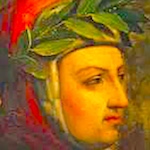
Petrarch
1304 – 1374 CE
The “Father of Humanism,” troubadour of romantic love, lover of nature, “Virgil born again,” the most famous unrequited lover, and most important poet of his age; Petrarch inspired an interest in ancient history and as “the first tourist” discovered and translated many old manuscripts including Cicero’s letters that sparked the 14th-century Renaissance. Holding the sense over the words, he challenged orthodoxy and invented new Latin terms to describe Greek philosophy, developed the concept of an historical “Dark Age” after the fall of Rome, a need for a cultural revival, inspired the political, military, and religious leaders of his time to ground their lives in classical values and contemplation. and his sonnets became a model for lyrical poetry through modern times.
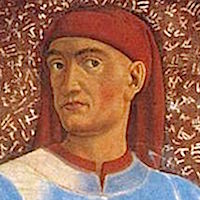
Giovanni Boccaccio dʒoˈvanni bokˈkattʃo
1313 – 1375 CE
Close student, friend and collaborator with the “Father of the Renaissance,” Petrarch; Boccaccio became a popular poet/writer, “the first Greek humanist in Western Europe,” and promoted the ancient literature, philosophy, and history which set the stage for the Renaissance. His book on classical mythology became a key reference for 400+ years and challenged Christian belief that only the Bible was relevant, that there was only harm in “pagan” writings. In an early nod to feminist proposition, he wrote the first collection devoted to the biographies of famous women. Living through a tumultuous time of political intrigue, the executions of his friends, bitter poverty and bad health; he resisted many of the era’s superstitious and setting-sun forces; translated works by Homer, Euripides, and Aristotle; and helped launch one of history’s most influential shifts, the Renaissance.
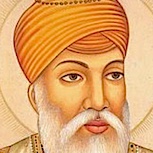
Kabīr कबीर
1399 – 1448 CE
Formidable iconoclast and deeply spiritual but anti-religious leader, a simple weaver but greatest poet of his time and place; Kabīr was born and raised as a Muslim, studied with a Hindu guru, became critical of both traditions, was physically threatened by both and after he died revered and claimed by both. From his background of a Muslim father and Hindu mother, he worked tirelessly to unite both traditions with a wisdom beyond their sectarian views. An important influence on Guru Nanak and the founding of Sikhism, his poetry and wisdom continue today in mainstream Indian film, folk songs, and even progressive rock.
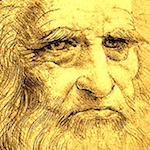
Leonardo da Vinci
1452 – 1519 CE
One of the most talented people to have ever lived, original “Renaissance Man,” father of paleontology, ichnology, and architecture; with a passionate curiosity and interest in everything, da Vinci’s genius extended to science, music, mathematics, engineering, painting, architecture, sculpture, anatomy, geology, astronomy, botany, history, and cartography. Remarkable inventor, mystical pantheist, vegetarian, savior of caged birds, and exemplar of journey-without-goal, he wrote over 5000 pages but didn’t finish one book, many of his commissions, even some of his greatest paintings, and claimed that one of the his most famous paintings, The Mona Lisa was incomplete.

Michelangelo
1475 – 1564 CE
One of the greatest artists of all time and complete “Renaissance man,” much of Michelangelo’s painting, sculpture, and architecture stands with the world’s most famous. Also a poet and engineer and unlike many famous artists, his genius was recognized during his lifetime – he was the first Western artist with a biography published while still alive. His statues of David and the Pietà are the most famous sculptures in the west, his painting of the Sistine Chapel ceiling is the “cornerstone of Renaissance art,” his architectural innovations were revolutionary and St. Peter’s Basilica is regarded as the greatest building of its age and remains one of the two largest churches in the world.
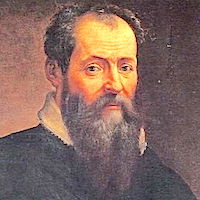
Giorgio Vasari dʒordʒo vaˈzaːri
1511 – 1574 CE
The first art historian, friend and student of Michelangelo, first to use in print the term "Renaissance,” architect, politician and painter; Vasari praised competition and was one of the first writers to use this term related to economics. The first to write a series of biographies about famous artists and describe the continuity of art, his dedication to artists and their art was so great that he once ran into the peril of a rioting crowd to rescue the pieces from an arm of Michelangelo’s statue “David” they had broken with a bench. Unlike many artists unrecognized until after their death, he was famous during his lifetime, became very wealthy, and even a powerful politician.

Gaspara Stampa
1523 – 1554 CE
Unrecognized during her life with only 4 of her more than 300 sonnets and poems published, Gaspara is now considered one of the best 16th century lyricists and greatest Italian woman poet of any time. From a merchant class and not nobility like the other poets of her time, she didn’t let her humble origin and lack of credentials stop her from writing some of the most memorable works of her era. Also a wonderful singer and lute player, she transformed the pain of unrequited love into inspired artistic creation that became a milestone in women's literature and a huge inspiration for Rainer Maria Rilke and many others.

Montaigne
1533 – 1592 CE
Grandfather of the Enlightenment
Son of a fish-seller, grandfather of the Enlightenment, “the first modern man,” statesman, author, apostle of doubt and moderation, Renaissance author most in harmony with the modern mind; Montaigne wrote some of history’s most influential essays. A master story-teller balancing philosophy with personal anecdote, deep insight with entertainment, wisdom and humor; he built on Lucretius and had a direct influence on Francis Bacon, Descartes, Pascal, Rousseau, Emerson, Nietzsche, and Shakespeare. “The most pagan of Christians,” called “the wisest Frenchman that ever lived,” he is still “read today as if he had written yesterday
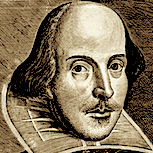
William Shakespeare
1564 – 1616 CE
The greatest writer in the English language whose works - 400 years after his death - have been translated into every living language and remain popular, respected, studied, and performed throughout the world; Shakespeare was as Ben Johnson wrote, "not of an age, but for all time.” When 18 years old, he had his first child 6 months after getting married and before long became a playwright and actor in his own and others’ plays. Unlike many of the prime movers on our biography lists, Shakespeare, though not revered, was successful during his lifetime (as a businessman) and by the time he was 33 while living in London owned the second largest home in Stratford. His influence not only revolutionized drama, scholars link more than 20,000 pieces of music to his writings, many famous paintings, his language helped shape modern English and common everyday phrases, Sigmund Freud drew heavily on him while developing his psychology theories, and Durant describes his influence as moving us to the depths of our spirit.
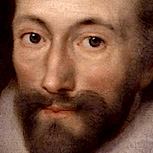
John Donne
1572 – 1631 CE
Leading and inventive metaphysical poet, cleric, politician, womanizer, and one of the greatest love poets; John Donne brought a distinctive style filled with paradoxes and ironies to poems ranging in topic from deeply religious to vibrantly erotic. Fired and imprisoned because of a secret marriage, he lived in poverty for many years while devoting his attention to the idea of “true religion” beyond the superficiality of undigested concepts and superstitious belief. A strong influence on W. B. Yeats, Hemingway, T. S. Eliot, Dylan Thomas, Coleridge, W. H. Auden, Van Morrison, Robert Oppenheimer; his impact continues today with examples like the movie The Incredibles, that took its Nomanisan Island from his famous saying, "No man is an island.”
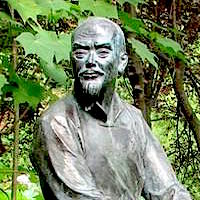
Lǐ Yú 李漁 (Li Liweng)
1610 – 1680 CE
“Artist of Living, playwright, actor, director, poet, novelist and "writer-entrepreneur;” Li Yu dropped out of the imperial exam process and instead of becoming an official traveled through China with his own acting troupe writing plays, acting and directing. A daring and creative writer described by biographers as the “most versatile and enterprising writer of his time,” he wrote the Carnal Prayer Mat which became a Chinese erotic classic, Errors caused by the Kite that endures as a Chinese opera favorite, The Arts of Living that continues its influence on practical wisdom, and translated many popular essays.
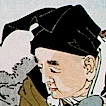
Matsuo Bashō 松尾 芭蕉
1644 – 1694 CE
The most famous poet of the Edo period in Japan and still internationally renowned and recognized as the greatest master of haiku, Bashō left his samurai status, urban fame and fortune to wander throughout Japan writing poetry. During periods of history in Japan, criticizing his poetry was considered blasphemous and many of his poems are reproduced on monuments. Some scholars believe he invented haiku and his verse greatly influenced Ezra Pound, the Imagists, and Beat Generation poets.

Hakuin Ekaku 白隠 慧鶴
1686 – 1769 CE
A monk at just 15, Hakuin soon became dissatisfied with the teachings available, left the monastery, began wandering and met a Taoist hermit, Hakuyu. One of the most influential figures in the Zen tradition, Hakuin included teachings from many different traditions and brought these to the illiterate. Although not beginning to paint until almost 60, he’s now recognized as one of the greatest Zen painters with works displayed in some of the world's leading museums. In a famous story, when unjustly accused of fathering a child and also when the mother later confessed to the lie and the child was taken away from him, his only comment was “Is that so?”
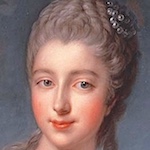
Madame de Pompadour (Jeanne Antoinette Poisson)
1721 – 1764 CE
Called by Will Durant “One of the most remarkable women in history” as “the most cultured woman of her time” and by Voltaire “one of us,” Madame de Pompadour as chief mistress of Louis XV became a brilliant governor of France, protector of Voltaire, savior of Diderot’s Encyclopedie, patron to Rousseau, Montesquieu, and the “Age of Enlightenment” in general. Excommunicated by the Catholic Church and the “Queen of Rococo,” she supported philosophy, literature, music and art as porcelains, hair styles, dresses, chairs, ribbons, beds, and dishes were named after her. Beautiful, charming, and intelligent, she led France to its highest artistic influence on European civilization as well as making her country much stronger economically and politically.
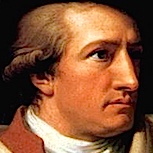
Goethe, Johann Wolfgang von
1749 – 1832 CE
Though a literary celebrity at 25 and most well known for his novels and poems, Goethe was also a natural philosopher, diplomat, civil servant, geologist, and scientist who developed a theory of color, inspired Tesla’s discovery of alternating current and whose early work on evolution influenced Charles Darwin. A freethinker who blended Christianity with pantheism, humanism, and other esoteric traditions, he became a major influence on Hegel, Schopenhauer, Kierkegaard, Nietzsche, Hesse and Jung. He authored some of the greatest novels ever written and his poems were set to music by Mozart, Beethoven, Schubert, Brahms, Liszt and many others. Continuously creating for 82 years, his wisdom deepened and merged into a culture we take for granted today.

William Blake
1757 – 1827 CE
A poet, painter, and songwriter mainly unrecognized during his life and at the time considered mad, Blake is now called “far and away the greatest artist Britain has ever produced” and “a seminal figure in the history of poetry.” Not fully appreciated until more than 200 years after he died, he’s now considered one of the most powerful impacts on twentieth century culture with an enormous influence on Carl Jung, Aldous Huxley, poets like William Butler Yeats and Allen Ginsberg, songwriters like Bob Dylan and Van Morrison. The origin of graphic novels and fantasy art trace back to Blake.
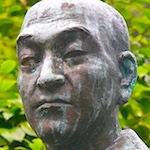
Ryokan 良寛大愚 (Ryōkan Taigu,“The Great Fool”)
1758 – 1758 CE
One of the most popular personalities in all of Japanese history, neither priest or lay person, “unthinkably kind” but strict practitioner, saturated with enlightenment yet calling himself “The Great Fool;” Ryōkan was a scholar, calligrapher, and poet yet spent his time with ordinary people. He took no disciples, gave no sermons, took no positions, and spent his time begging, playing with village children, writing and speaking some of the East’s best poems that bridge the gap between understanding the words and understanding the sense. Non-sectarian, a critic of institutional power and professionalism, and startlingly honest, today Ryōkan is a true Japanese national hero familiar to almost every child and respected by young and old, rich and poor, powerful and humble.
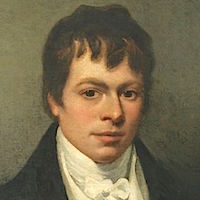
Robert Burns
1759 – 1796 CE
Tenant farmer, tax collector, "The Greatest Scot of all time,” people's poet of Russia, political radical, and writer of one of the wold’s most popular songs (Auld Lang Syne); Burns celebrated everyday life, farming, culture, religious practices, and love. Father of at least 13 children (most born out of wedlock) with at least 5 different women, his affairs were unencumbered even by loves who inspired some of the best love songs ever written. Far beyond it’s place as favorite US New Year’s Eve song, Auld Lang Syne is sung all over the world, was the Korean and Maldive national anthem, popular graduation song in Japan, and sung by troops in the American Civil War and during World War I.
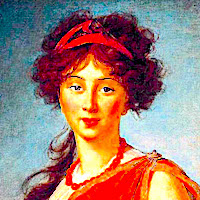
Madame de Staël (Anne Louise Germaine de Staël-Holstein)
1766 – 1817 CE
"The greatest woman of her time"
Powerful political advocate, “first woman of Europe,” fascinating conversationalist, "Napoleon's Nemesis," and preeminent authoress of the time; Madame de Staël inspired and encouraged the political opposition to the Reign of Terror and later to Napoleon and was banished for her efforts. A potent influence on European Romanticism and persuasive advocated of liberty, she sponsored and led salons, wrote novels, and important speeches. Praised by Tolstoy, her political influence advanced representative government, constitutionalism, and women’s rights. Her opposition to dictatorship brought her into intense conflict with Napoleon and she was considered—along with England and Russia—one of the 3 main forces against him. Struggling with opium addiction and suicidal depression, a close friendship with Juliette Récamier enabled her to continue and become—in Macaulay’s phrase—“the greatest woman of her time.”

William Wordsworth
1770 – 1850 CE
Orphaned at an early age, connected with the common man while wandering through Europe on foot, caught up in both the ups and downs of the French Revolution, and Britain's only Poet Laureate who wrote no official verse; Wordsworth defined poetry as "the spontaneous overflow of powerful feelings” and along with Samuel Coleridge, used poems based in common language to help launch the Romantic Age of literature. A student of John "Walking" Stewart who blended yoga and Eastern wisdom from India with western pantheism, he published some of the most influential poetry in Western literature.

Novalis
1772 – 1831 CE
Poet, philosopher, mystic and civil engineer, Novalis (Georg Philipp Friedrich Freiherr von Hardenberg) only lived 28 years but in that short time still managed to condense his insight and poetic wisdom influencing Emerson, Hermann Hesse, Rilke, C.S. Lewis, Borges, and through George MacDonald, Tolkien, Mark Twain, GK Chesterton, Madeleine L'Engle. the Inklings, and the entire fantasy genre in literature.
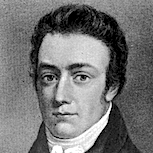
Samuel Taylor Coleridge
1772 – 1834 CE
One of the most influential English poets, co-founder of the Romantic Movement, prominent philosopher, gothic pioneer and leviathan impact on Mary Shelley, William Wordsworth, Thomas Carlyle, Emerson and American transcendentalism; Coleridge paid for his renown with poor health, depression, bipolar disorder, and a lifetime of opium addiction. Rescuing Shakespeare’s play Hamlet from denigration by critics, he established his reputation as aliterary critic. The instigator of "Conversational Poetry,” using common, everyday language to convey deep images and wisdom, he coined many still-used words like soulmate, selfless, pessimism, relativity, narcissism, actualize, and intensify
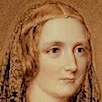
Mary Shelley
1797 – 1851 CE
Caught between her famous father’s Enlightenment political theories (William Godwin) , her famous husband’s allegiance to the ethos of Romanticism (Percy), and her famous mother (Mary Wollstonecraft) who is considered a founder of feminist philosophy; Shelley’s work promoted Taoist-like values emphasizing collaboration over competition, compassion over personal gain, the true civilizing role of the feminine principle. Her novel, Frankenstein foreshadowed our modern era and how easily we can become enslaved and manipulated by our inventions. A voice against superstition and dogma, her books became a beacon for the era of Romanticism, liberal politics, and gender equality.

George Sand (Amantine Lucile Aurore Dupin)
1804 – 1876 CE
Intriguing, inspiring, and subversive; France's most famous 19th C. woman writer; friend to Franz Liszt, Balzac, Henry James, Browning, Dostoevsky, and Turgenev; famous lover of composer Chopin, and famous actress Marie Dorval, George Sand was a cross-dressing, cigar and hookah smoking, rebellious and scandalous dramatist and campaigner for important political reforms. Not the most likely person for this list, her creative courage and compassionate kindness make it an easy choice. As she wrote, “Know how to give without hesitation, how to lose without regret, how to acquire without meanness.”
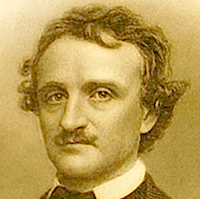
Edgar Allan Poe Edgar Allen Poe
1809 – 1849 CE
Edgar Allan Poe (1809 – 1849)
Inventor of the detective genre, founding father of modern science fiction, central figure in the Romanticism movement, poet, fearless "tomahawk man" critic, and first well-known American writer to live on writing alone; Edgar Allan Poe influenced literature here and around the world as well as television, music and movies still popular today. An orphan at two, often troubled by gambling and gambling debts, forced to drop out of college after one semester because of financial problems that plagued him his entire life, “Mad genius" and "tormented artist;” Poe’s influence extended into the the worlds of cryptography, physics and cosmology as one of his theories foreshadowed the Big Bang theory by 80 years.
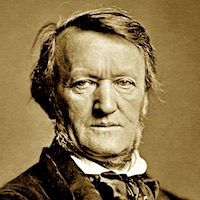
Wilhelm Richard Wagner
1813 – 1883 CE
"Music-drama" composer, revolutionary of opera, prolific writer, and forefather of psychoanalysis; Wagner blended with his music a flare for the poetic, philosophical, visual, and dramatic arts. Although famous and greatly respected, most his personal life filled with poverty, political exile, and dramatically painful love affairs. His research and insight into psychoanalytical themes like dream interpretation, the Oedipus myth, and the relationship between anxiety and sex predated Freud's birth. He became a major influence on luminaries like W. H. Auden, Thomas Mann, Marcel Proust, James Joyce, and T. S. Eliot.
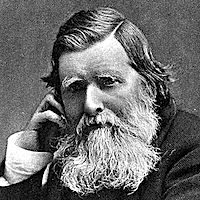
John Ruskin
1819 – 1900 CE
John Ruskin (1819 - 1900)
Strong and continuing international advocate for sustainability and protecting the environment, Christian socialist, leading Victorian era art critic, poet, philanthropist, and social thinker; Ruskin wrote over 250 manuscripts, influencing his contemporaries and many strands continuing today into modern culture. Admired by Proust, Gandhi, and Ryuzo Mikimoto in Japan; Leo Tolstoy called him, "one of the most remarkable men not only of England and of our generation, but of all countries and times.” Emphasizing the unity of nature, art, and culture; he developed principles for an ideal society which were used to set up many “Utopian Colonies.” His ideas helped found the modern Olympic Games, the British welfare state, many kind of social insurance programs, as well as the “garden city movement” that first included "greenbelts" in urban planning.
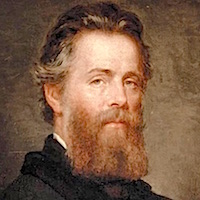
Herman Melville
1819 – 1891 CE
One of the best and most influential of all American writers but almost forgotten and unknown during the last 30 years of his life when he had to take a job as a Customs Inspector; Melville brought myth, scripture, philosophy, and mystical imagery to his haunting novels. Drawing on his adventurous ocean travels, he wrote Moby Dick which was a commercial failure and strongly criticized when first written but became a world classic described by D. H. Lawrence as "the greatest book of the sea ever written" and "one of the strangest and most wonderful books in the world.” Portraying the delicate dance between truth and illusion, the impossibility of deep and mutual communication, and the search for the absolute in the relative; his works gave a deep and powerful color to world literature.
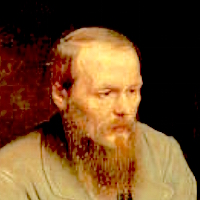
Fyodor Mikhailovich Dostoyevsky Фёдор Миха́йлович Достое́вский
1821 – 1881 CE
One of history’s most influential novelists and one of the greatest psychologists in world literature; Dostoyevsky led a tortured life that included being arrested for discussing banned books, being sentenced to death, spending 4 years in a Siberian prison camp, 6 years of forced/exiled military service, and struggling with a gambling addiction that made him have to beg for money. His second wife who he met when she was 19 and he 25 years older, helped turn his life around and produce some of the world’s best literature. His books have been translated into more than 170 languages and he was admired by Hermann Hesse, Ernest Hemingway, James Joyce, Kafka and Sartre. Albert Einstein called him a "great religious writer,” Nietzsche “among the most beautiful strokes of fortune in my life", Sigmund Freud called The Brothers Karamazov "the most magnificent novel ever written,“ and Virginia Woolf said, "Out of Shakespeare there is no more exciting reading.” His influence in modern time extends to the existentialists, surrealists, and the Beat generation.
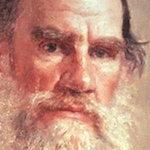
Leo Tolstoy
1828 – 1910 CE
One of the greatest authors of all time, Tolstoy’s dedication to nonviolent resistance had a deep impact on leaders like Mohandas Gandhi and Martin Luther King. His influence on education was opposed and stopped by Tsarist secret police but still became the first example of democratic education. Inspired by the Buddha, Confucius, and Chinese traditions, he was a strong Christian in a style like the early Gnostics and believed in seeing “The Kingdom of God Is Within You” rather than relying on an external church organization or priests. Excommunicated from the Russian Orthodox Church, he revived and inspired an authentic and practical Christian philosophy.
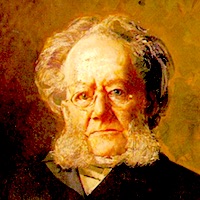
Henrik Ibsen
1828 – 1906 CE
"The world's 2nd most-performed playwright"
One of his time's most influential dramatists, Ibsen became—after Shakespeare—the world's most performed playwright. Considered a founder of theatre modernism and realism, he became on of the most influential playwrights of the 19th century. Examining the dark underside of his contemporary culture, many thought his works scandalous and they were both intensely loved and hated. The hated side forced him into poverty, self-imposed exile, and the wrath of critics. Nominated for the Nobel Prize in Literature 3 times, he became a strong influence on other influential writers like Eugene O'Neill, Oscar Wilde, Arthur Miller, James Joyce, and George Bernard Shaw. One of his plays, the 1879 A Doll’s House, became almost universally popular and was still the world's most performed play in 2006
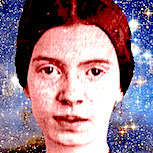
Emily Dickinson
1830 – 1886 CE
Though now considered one of the greatest figures in American literature and one of the most important poets, only a few of Dickson’s poems were published during her lifetime and those were significantly edited and changed by publishers. Her first collection wasn’t printed until years after her death and a complete collection wasn’t published until 1955. A serious student of botany, she made and maintained a vast collection of plants; highly introverted, creative, unique, and challenging the assumptions of her time; she seldom left her house but wrote 40 volumes of almost 1800 poems.

Mark Twain (Samuel Langhorne Clemens)
1835 – 1910 CE
America’s most famous author
Riverboat captain, adventurer, bankrupted businessman, inventor, and America’s most famous author; Mark Twain, with his wit, wisdom, insight, and humor influenced and continues to positively influence the world. A strong supporter of women's, religious, racial, and labor rights; he wrote scathing indictments on war, patriotic, and religious bigotry and published new work in 3 different centuries. Though disliked by his wife Livy, his book The Adventures of Huckleberry Finn ranks among history’s all time best. Ernest Hemingway said, ”All modern American literature comes from one book by Mark Twain called Huckleberry Finn.”
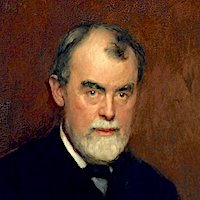
Samuel Butler
1835 – 1902 CE
Iconoclastic philosopher, artist, composer, author, and evolutionary theorist
Friend and student of Charles Darwin, serio-comic satirist, champion of small-is-beautiful everyday experience; Butler composed Handelian-style cantatas and piano pieces, painted works of art hung in London museums, and translated the Iliad and the Odyssey that he believed were written by a Trojan and by a Sicilian woman. In his book Erewhon, crime is considered a disease while disease and physical imperfections are considered crimes. Aldous Huxley thought Butler's ideas transformed Western culture's attitudes toward crime, technology, and 'progress'.
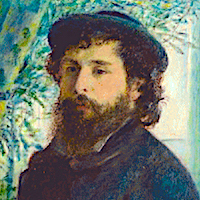
Claude Monet
1840 – 1926 CE
"the driving force behind Impressionism"
A founder, instigator, and vivid example of Impressionist painting; Monet brought Boudin's dictum of preserving "one's first impression" to artistic near-perfection. It was only shortly after his birth that the discovery of metal-tubed pigments made painting outdoors practical. This new technology opened up an expansive world of light variation and Monet—like ancient explorers of uncharted new lands—launched exploratory journeys into these new visual countries. He frequently painted many times the same scene under differing light conditions.
Beginning his commercial artistic career at only 15 selling popular caricatures, this initial success disqualified Monet from the acclaimed art schools and sent him on a road of his own including years on the move avoiding creditors and seeking a home and place to paint. Unlike the majority of pioneering artists, however, he was recognized during his lifetime and died both prosperous and famous. During the last half of his life, he traveled less and less while cultivating the gardens of Giverny which—like his paintings—included bright patches of color in a messy but balanced whole.

Robert Louis Stevenson
1850 – 1894 CE
Humanist, social and political critic, poet, composer of over 120 complex musical works, 26th most translated author in the world; Stevenson grew up in a religious family of engineers frail, sickly, and alienated. His father once said, "You have rendered my whole life a failure.” Fiercely criticized by Virginia Woolf and early literary critics but praised by Borges, Proust, Arthur Conan Doyle, Hemingway, Kipling, Jack London, and Chesterton; he now ranks alongside Henry James and Joseph Conrad. In spite of physical frailty, he traveled widely and supported his writing with hard labor and a frugal lifestyle often surviving long periods living on less than 40¢/day. He saw himself, his time, and culture with a rare self-clarity that cut to the deep basic goodness manifesting in his unforgettable characters.
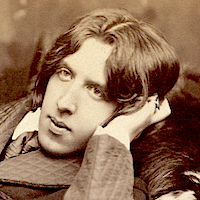
Oscar Wilde
1854 – 1900 CE
Oscar Wilde (1854 - 1900)
Prolific Irish poet, writer, journalist, and one of the most successful playwrights of his time; Wilde rebelled against his moralistic, Victorian environment with an “unequivocal inclination toward the unconventional” favoring passion and sensual pleasure. Strongly influenced by his teacher, John Ruskin, he transformed his more hedonistic tendencies into deep social concerns and wrote against decadence, duplicity, and libel. Married and with two sons, his writings went against popular opinion by describing women as creative and intelligent. His liaisons with men however led to a trial for homosexuality, incarceration, a severe injury in prison after collapsing from illness and hunger, and later death in extreme poverty. In many ways, his life seems to have exemplified his famous aphorism, “No good deed goes unpunished.”
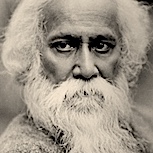
Rabindranath Tagore
1861 – 1941 CE
Author, painter, “the greatest poet India has produced,” and song writer of over 2000 songs including the national anthems for India, Bangladesh, and Sri Lanka; Tagore was the first non-European to win the Nobel Prize in Literature. A universal internationalist, he was strongly against nationalism and introduced Indian culture to the West as well as Western culture to India. A close friend of Gandhi, he renounced his British knighthood and gave voice to the deeper wisdom within all strata of society: rich and poor, powerful and humble.
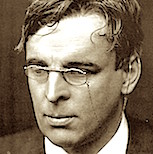
W.B. (William Butler) Yeats
1865 – 1939 CE
Symbolist poet, Irish Senator, and icon of 20th-century literature; Yeats won the Nobel Prize for literature in 1923 which enabled him for the first time to pay off his and his father’s debts. Though dabbling in the occult and automatic writing in his youth, he became a standard-bearer for Irish cultural independence and nationalism. Challenging the Irish Catholic political dominance, he championed divorce rights and confronted religious leaders but later supported aristocratic over democratic rule. Called by Ezra Pound "the only poet worthy of serious study,” his personal evolution of Hindu-based spiritualism helped inspire some of the "most potent images in twentieth-century poetry.”
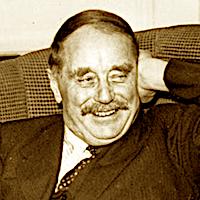
H. G. Wells
1866 – 1946 CE
A father of science fiction and One World Government apostle
Social critic, journalist, prophetic futurist, and “A father of science fiction”; Wells—a prolific writer of novels, social commentary, and history—wrote more than 100 books. He envisioned the World Wide Web, nuclear weapons, satellite television, mass surveillance, and many other un-invented but now common technologies. He also explored both the positive an negative ways of integrating them into civilization. An outspoken socialist and proponent of equality and human rights, Wells had a strong influence on his friend Winston Churchill who peppered his speeches with Wells-quotes. Nominated for the Nobel Prize in Literature four times, his influence extended to almost all modern science fiction writers. A strong believer in the need for us to become citizens of the world under a One World Government, he helped create the UN-adopted Universal Declaration of Human Rights. He worked hard on the creation of the League of Nations but disappointment with its effectiveness and inability of politicians to elevate the common-world good over their personal benefits led to his conjecture that it might be better for another species to replace humanity.
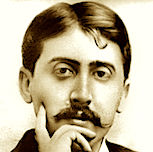
Marcel Proust
1871 – 1922 CE
Apostle of Ordinary Mind
Apostle of ordinary mind, the “Proustian moment,” and one of the world’s greatest novelists; Proust never worked a job, suffered ill health his entire life, lived with his parents, and spent his last years in bed sleeping all day and writing all night. W. Somerset Maugham called his 3200-page novel, In Search of Lost Time the "greatest fiction to date” and - a huge influence on modern writers - it’s Michael Chabon’s favorite book, in lists of top 10 greatest books of all time, and called "the most respected novel of the twentieth century." Abandoning dramatic action and complicated plot, his novels evoke the sacred in the commonplace, wonder and magic of ordinary experience, and propose art in everyday life as the true meaning of life deeper than all fame, fortune, pleasure, power, or even love.
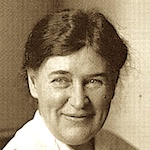
Willa Cather
1873 – 1948 CE
Modern day Lao Tzu
Wonderful novelist with a flare for evoking a deep appreciation for nature and the natural world, Willa Cather championed the values of self-sufficiency, independence, and harmony with nature. Nostalgic for the time when most people lived on farms, she used “the rising and setting of the sun” as a major theme and honored the struggle of exiled immigrants. Infusing meaningfulness and sacred outlook into simple, daily tasks she unknowingly continued the Zen spirit and understanding Lao Tzu wrote about so much longer before.

Rainer Maria Rilke
1875 – 1926 CE
Profound singer of universal music
One of the most popular and best-selling poets of all time, a Catholic who believed that Jesus had a baby with Mary Magdalene, secretary to famous sculptor Rodin, lover and confidant of married Sigmund Freud student, psychoanalyst, and Nietzsche’s love focus, Lou Andreas-Salomé; Rilke’s mystical writings are still frequently quoted on TV, in movies, music, and self-help books. Taking art as religion and the only source of human redemption, he reconciled dichotomies like life and death, suffering and joy, beauty and destruction unifying opposites and finding deep meaning is all experience. He described god as nature, life force, and an evolving consciousness only slowly coming into existence. Hermann Hesse wrote that “through him resounds the music of the universe.”
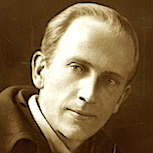
A.A. Milne (Alan Alexander Milne)
1882 – 1956 CE
Student of H. G. Wells, friend of authors J. M. Barrie and Arthur Conan Doyle, military propaganda writer during World War I and peace advocate afterwards; Milne resisted the selling out of authors for monetary gains saying he would rather write a telephone directory at his own inspiration than a Blank Verse Tragedy at others’ direction. Made famous after his death by Walt Disney productions, his Winnie the Pooh imagery - second only to Mickey Mouse - inspired $6 billion worth of products. His “children’s” books (especially Now We Are Six) open psychological doors into direct experience of nowness and appreciation of the sacred quality of simple, everyday perception.
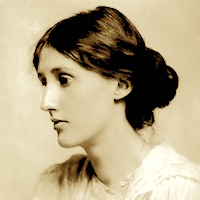
Virginia Woolf
1882 – 1941 CE
Stream of consciousness writing pioneer, one of the most influential 20th century writers, “the major lyrical novelist in the English language,” and “feminist inspiration;” Woolf struggled with mental illness all her life and yet wrote some of the era’s best short stories and novels, some translated into 50 languages. A deep influence on world culture, she promoted universal education, intellectual freedom, class equality, and feminism. Still popular today, the National Portrait Gallery in London sells more of her postcards than of any other. With a deep understanding of inner, psychological struggle, her characters expose the sacred within the ordinary, the profound in the midst of the commonplace.
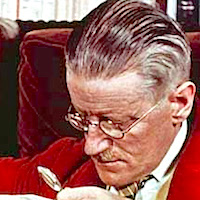
James Joyce
1882 – 1941 CE
James Joyce (1882 – 1941)
Polyphonic novelist, poet, one of the most influential 20th century writers, stream of consciousness avant-garde modernist; Joyce revolutionized modern fiction while - according to a psychoanalyst - using his writing to avoid a complete psychotic break. A huge influence on philosophers and writers as varied as Borges, Rushdie, Beckett, Robert Anton Wilson, Joseph Campbell, and John Updike; his influenced crossed over into the world of science as he became the source of the now popular scientific term, “quark..” Finnegans Wake - considered the most challenging work ever written in the English language - shines as a monument to the possibilities of creative spirit unshackled by regard for public opinion. Although considered one of the greatest novels ever written., controversy and resistance kept his novel Ulysses from being published in the USA until 12 years after it was written. His writing style and content brings out the deeper reality of situations and experiences pointing toward the sense rather than the words.

Inayat Khan
1882 – 1927 CE
Grandson of famous musician and “Beethoven of India,” Ustad Maula Bakhsh and married to the cousin of Christian Science founder Mary Baker Eddy; Inayat Khan joined together esoteric mysticism with the magic of music and brought Sufism to the West. He warned against any blind belief systems and inspired visions of beauty, harmony and love. He taught that nature is the only holy book, self-realization the only truth, “unswerving progress in the right direction” the only religion, and all the children of earth our only true family. He traveled widely spreading his vision of seeing through the identifications separating people and harmonizing the East and the West.
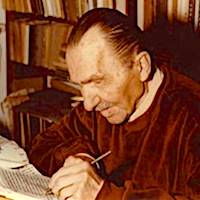
Nikos Kazantzakis
1883 – 1957 CE
Fearless philosopher, poet, translator, prolific writer, and spiritual alchemist; Kazantzakis was condemned by the Catholic Church and the Orthodox Church wouldn’t even let him be buried in a cemetery. He followed in the Zen/Taoist tradition of synthesizing opposites and reconciled Buddhism and Christianity, philosophy and politics, sensuality and a spiritual path. An extensive traveler in both the east and west, he was given the International Peace Award and made great contributions to culture beyond nationalism, religion, and sectarian view.

William Carlos Williams
1883 – 1963 CE
Life-long physician, pediatrician, friend to Ezra Pound; Williams worked as a doctor by day, as a writer by night, merged poetry with painting, imagery with modernism. His literary experimentalism working to create a new art form was so radical it was even criticized by radical experimentalists. Overshadowed by the timing and work of T.S. Eliot, Williams abandoned and criticized this intellectual style favoring instead American colloquial English writing an epic poem of place about Paterson, NJ. Mentor to the Beat Poets and in particular Allen Ginsberg, he won the first National Book Award for Poetry, the Gold Medal for Poetry, and posthumously the Pulitzer Prize.

Kahlil Gibran
1883 – 1931 CE
After Shakespeare and Laozi, Gibran is the third best-selling poet of all time. His friends included WB Yeats, Carl Jung and Auguste Rodin. Elvis Presley was deeply influenced by Gibran, read passages to his mother, made notes in the margins, and gave away copies of The Prophet to his friends. Johnny Cash was also a big fan and John Lennon adapted lines from his poetry into his songs.
{Maronite Christian, Bahá’í, Sufi}
The Prophet, Sand and Foam, The Earth Gods, The Broken Wings, Love Letters in the Sand.
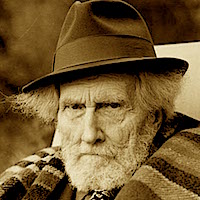
Ezra Pound
1885 – 1972 CE
Major influence on modern poetry, developer of Imagism, critic of international capitalism to the extent of supporting Hitler and Mussolini; Pound helped to discover, animate, and promote literary figures including Ernest Hemingway, T. S. Eliot, James Joyce, and Robert Frost. The depth and genius of his writing was tarnished by his political views and actions which resulted in being convicted of treason, solitary confinement and probably torture in a US military prison that caused a mental breakdown and 12 years of incarceration in a Washington, D.C. psychiatric hospital. Considered by Arthur Miller “worse than Hitler” and called a "National Monster" by many; Hemingway wrote that his writing “will last as long as there is any literature" and Carl Sandburg that "All talk on modern poetry, by people who know, ends with dragging in Ezra Pound somewhere.” In later life he confessed to his Jewish protege Allen Ginsberg his confused belief in ideologies and that, “Any good I've done has been spoiled by bad intentions […] But the worst mistake I made was that stupid, suburban prejudice of anti-semitism.” Although sages warn against flattery and recommend welcoming criticism, Pound’s anti-semitism and support for fascism make it extremely difficult although increasingly important to openly hear his valid criticisms of our culture and state of civilization. The smartest people learn from smart people’s mistakes.
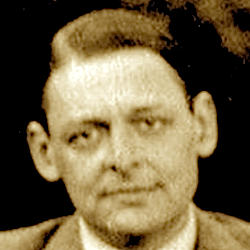
T. S. Eliot
1888 – 1965 CE
T.S. Eliot, Thomas Stearns Eliot (1888-1965)
Literary and social critic, "one of the twentieth century's major poets,” publisher and playwright, Nobel Prize winner and “the poet of the modern symbolist-Metaphysical tradition;” T.S. Eliot wrote some of the best known English poems. Reversing the more common trend, he was more respected during his lifetime, less so after but still almost universally acknowledged as a pioneering and major influence on modern poetry. He emphasized insight and poetry arising from the unconscious mind. Often accused of anti-Semitism, he described himself as a "classicist in literature, royalist in politics, and anglo-catholic in religion".
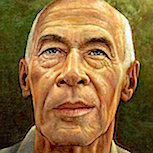
Henry Miller
1891 – 1980 CE
Banished from the UK, literary bohemian in 1930’s Paris, painter of over 2,000 watercolors, author of over 50 books (many banned for a generation), anti-Vietnam War voice, “one of the most iconoclastic literary spirits of our time,” legendary lover from Anaïs Nin to Playboy magazine star Brenda Venus when he was 84 years old; he pioneered new literary forms, attacked respectability, broke cultural taboos, and in one of the main events in 1960’s sexual revolution, won a Supreme Court decision on obscenity. Continuing a tradition from Dostoyevsky, Balzac and Nietzsche; he was an important influence on Jack Kerouac, Philip Roth, Alan Ginsberg and Norman Mailer who called him “the writer’s writer.”

Pearl Buck
1892 – 1973 CE
Growing up and living in China as the daughter and wife of Christian missionaries, Pearl Buck described their arrogance and manipulation arguing against the benefit of missionaries and an institutional church. Denounced in China during the cultural revolution and prevented from visiting with Richard Nixon, she wrote 60+ books, won a Pulitzer, and became the first American woman to win the Nobel Prize for Literature. Long before they became popular or safe positions, she publicly challenged gender and racial discrimination while founding the first interracial and international adoption agency that placed over 5000 “unadoptable” children.
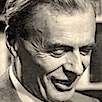
Aldous Huxley
1894 – 1963 CE
With deep insight and keen intelligence, Aldous Huxley for decades using almost every form of media to provide a penetrating commentary on contemporary civilization. Described as “the prophet of the 20th century,” he was nominated for the Nobel Prize in Literature 7 times. He brought into spotlight a vivid image of both the unconscious dark and potential brightness of our evolving technology, social, and political forms animating the dangers of consumption, conformity, technology dependence, indulgence, and pleasure-seeking as well as the potential of the perennial philosophy, finding deep meaning, understanding the sense and not just the words, experiencing the sacredness of each moment.
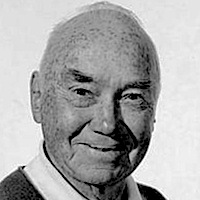
Paul Reps
1895 – 1990 CE
Author, artist, and early Western haiku poet; Paul Reps became a major welcoming influence for Zen coming to America
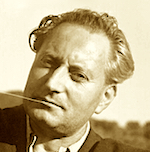
Jean Giono
1895 – 1970 CE
Jean Giono (1895 – 1970)
Son of a cobbler, one of France’s greatest writers, twice imprisoned pacifist, follower of Walt Whitman’s egalitarian pantheism, and grandfather to the modern ecological movement; Giono wrote numerous novels, short stories, articles, and poems. A master of metaphor, his masterpiece work The Man Who Planted Trees was rejected by Reader’s Digest for being too metaphoric. In response, Giorno refused any royalties, surrendered all his rights releasing it into the public domain, and gave free use to anyone who wanted to use it. Within 4 years it was translated into 12 languages and soon became a classic inspiration for everyone concerned with the environment and sustainability. An animated version won an Academy Award in 1988 and it’s considered one of the best animated films of all time.
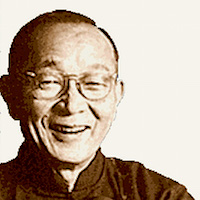
Lín Yǔtáng 林語堂
1895 – 1976 CE
One of the most influential writers of his time, translator, linguist, journalist, inventor, and nominated for the Nobel Prize in Literature; Lin Yutang worked hard to bridge the divides between East and West. He invented and built a Chinese typewriter, romanized the Chinese language, helped publish a Chinese-English dictionary, and brought Chinese culture and wisdom into the Western world’s awareness. Many of his classic Chinese translations became bestsellers helping to popularize Chinese philosophy. A prolific writer, he published magazines, wrote innumerable essays, and his books include more than 14 in Chinese and more than 30 in English. Born into a Christian minister’s family, he later studied and followed Confucianism, Taoism, and Buddhism but returned to a Christian path in his 60’s.
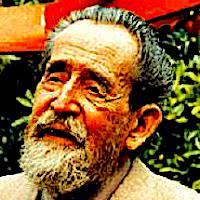
Dane Rudhyar ( Daniel Chennevière)
1895 – 1985 CE
Agent of cultural evolution
Modernist composer, transcendental artist, science fiction writer, philosopher, and founder of transpersonal astrology; Rudhyar thought of himself as a “seed” spreading a new era of cultural evolution. Prolifically creative his entire life, scholars consider his most fruitful period beginning when he was 74. During the next 10 years, he published several books a year including many insightful works on planetary consciousness. After performing one of the first original polytonal orchestral pieces in the United States, he met a Zen teacher and began studying Eastern philosophy. This led to an emersion in Theosophy, Jungian psychology, humanistic astrology, and the New Age movement. Living and teaching in 1960’s San Francisco, he became a major influence on the counter culture. He helped transmute much of the time’s superstitious allurements into symbolic interpretations and psychological insights.
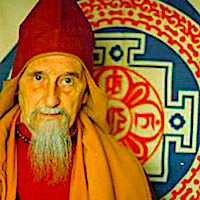
Anagarika (Lama) Govinda (Ernst Hoffmann)
1898 – 1985 CE
Pioneer of Tibetan Buddhism to the West
Poet, painter, and brave explorer of both our internal and external worlds; Lama Govinda—when only 16 years old—discovered Buddhism through the writings of Schoepenhauer. This led to a lifetime of traveling, discovering, practicing, and teaching Buddhism, and in particular, Tibetan Buddhism. An early Western initiate into Tibetan Buddhism, he traveled there in 1932 and became ordained in 1933. His writings and teachings became seminal for Tibetan Buddhism's entry into the west. Robert Thurman described him as, "one of the West's greatest minds of the 20th century. He believed he was a reincarnation of Novalis and died laughing.

Antoine de Saint-Exupéry
1900 – 1944 CE
French war hero, famous writer, poet, journalist, pioneering aviator, and an international inspiration for social aid and humanitarian projects; Antoine has the unique distinction of having his books banned by both Nazi occupied France as well as de Gaulle’s “Free” France. Modern France though voted The Little Prince the best book of the 20th century and holds him in such high esteem that his image and several of his drawings were printed on paper money, coins, and the stamps of more than 25 countries. Translated into more than 250 languages and full of deep but simple wisdom, The Little Prince is the 4th most-translated and one of the best selling books of all time.
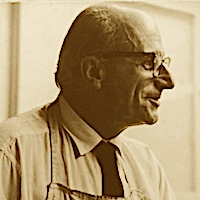
Kurt Seligmann
1900 – 1962 CE
An understanding of magic brought into the modern world
Surrealist painter, engraver, and author; Seligmann brought an openness and appreciation of mystery and magic into his art. Depicting baroque, heraldic imagery, troubadours, knights, and mythic themes; he translated his understanding of scientific magic into the visual world. During World War II, he helped artists hunted by Nazis escape from France to freedom. His art—popular with museums and collectors throughout the world—inspired an annual carnival in his native Switzerland.
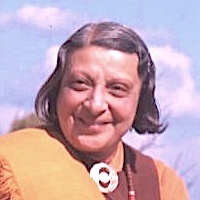
Li Gotami Govinda (Ratti Petit)
1906 – 1988 CE
Pioneering, fearless, artistic woman of wisdom
Photographer, painter, writer, composer, fearless traveler, and wise woman; Li Gotami was born into a wealthy Zoroastrian family in India, studied painting in Europe, became a close student of Abanindranath Tagore, and married Anagarika Govinda. A passionate traveler, she quickly broke out from the narrow boundaries expected of traditional Indian women. For many years, the couple lived near Kasar Devi a bohemian Mecca for their many friends—spiritual seekers like Walter Evans-Wentz, John Blofeld, Allen Ginsberg, Gary Snyder, Timothy Leary, Ralph Metzner, R. D. Laing, and Robert Thurman. Their many expeditions to Tibet included a perilous one to Tsaparang, the ancient capital Guge considered by some historians as the origin location of the Shambhala legends. Here she took photographs, did sketches, and made fresco tracings which preserve a record of how Tibet once was before the devastation of the Chinese invasion and extensive desecrations during the Cultural Revolution. In later life and in ill health, the couple moved to California where they were supported by Alan Watts and Suzuki Roshi's San Francisco Zen Center.
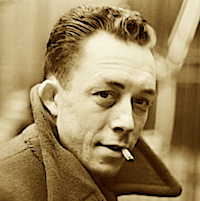
Albert Camus
1913 – 1960 CE
Journalist, playwright, philosopher, pacifist, philhellene, winner of the Nobel Prize in Literature, and Paradox of the Absurd champion; Camus grew up with an impoverished and illiterate mother who survived working as a house cleaner after his father was killed in WWI. Devoted to human rights, he worked in the French Resistance, for UNESCO, and protested against the Soviet police state. He passionately opposed capital punishment as well as all the other forms of totalitarianism. Philosophically he understood relative versus absolute understanding, rejected hope, criticized nihilism, pointed out the absurdity of our many paradoxes and confused, dualistic fixations, and explored the absurdity of finding the meaningfulness of life in external action. In many ways he wrestled with the same issues as Protagoras, the Buddha, and Lao Tzu.
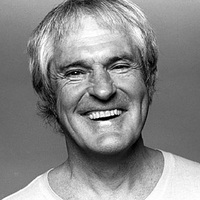
Timothy Leary
1920 – 1996 CE
Pioneering psychonaut, performing philosopher, and counter-cultural hero
Harvard professor, "performing philosopher,” counter-culture hero, consciousness explorer, and famous psychonaut; Timothy Leary personified the rebel archetype from an early age. He was court-martialed from West Point for refusing to inform on fellow cadets, expelled from the University of Alabama for spending a night in the female dorm, fired from his professorship at Harvard for allegedly missing classes, and during the 60’s and 70’s was imprisoned in 36 different prisons worldwide. President Richard Nixon described him as "the most dangerous man in America.” In 1960, he teamed up with fellow Harvard professor, Richard Alpert (Ram Dass) to launch the first scientific psilocybin research project; and later, with Allen Ginsberg began a campaign to introduce psychedelics and the discovery of higher levels of consciousness to the broader culture. He pioneered research into the benefits of psychedelics in curing alcoholism, inducing religious experiences, and reforming criminals (dropping recidivism rates rates from 60 to just 20%). He won a supreme court marijuana case and—with the support of John Lennon and Yoko Ono—ran for governor of California (Come Together was a Lennon-written campaign song). An early influence on Game Theory, Transactional Analysis, Aldous Huxley, Robert Anton Wilson, and Huston Smith; Leary became a major influence on modern psychology but also created a back-lash that effectively ended psychedelic research until its revival in modern times.
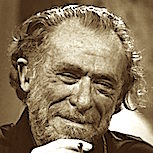
Charles Bukowski
1920 – 1994 CE
"Laureate of American lowlife”
Called "laureate of American lowlife,” “the original Big Lebowski,” “pulp-fiction hero,” and “king of the underground;” Bukowski wrote over 60 books, thousands of poems, hundreds of short stories, and was the writer behind Robert Crumb’s famous comics. Icon of the Los Angeles cultural life of his time, lover of alcohol, affairs, and outrageous creativity; he became the epitome and symbol of the anti-social, utterly free, and uninhibited bachelor. An intensely captivating and mesmerizing figure, his life and story show up in film personalities including Jean-Luc Godard, Ben Gazzara, Mickey Rourke, Faye Dunaway, Sean Penn, Dennis Hopper, Bono, Tom Waits, Julianne Moore, Jeff Bridges, Matt Dillon, and many more.
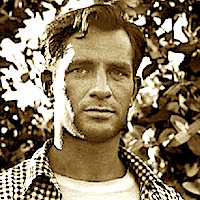
Jack Kerouac
1922 – 1969 CE
Father of the Beat movement, literary iconoclast, apostle of ordinary mind, and “new Buddha of American prose;” Jack Kerouac became one of the biggest influences on American culture. A symbol of contrast and paradox, he was a devout Catholic who became instrumental in launching and popularizing American Buddhism. Inventor of the term “Beat Generation” and foundation for the hippie movement, counterculture and left, he cheered on Joe McCarthy’s anti-communism while smoking marijuana. Like most pioneering visionaries breaking out of status quo stereotypes; he endured with deep true heart the hostility of academia, journalistic jealousy, secret police, the incomprehension of even his best friends, his family’s repression, vast media attacks, and the selling-out of his publishers. Relatively happy in obscure poverty and the most simple life style, he was undone by fame and fortune. Alan Ginsberg described him as “the single greatest writer in the twentieth century.”
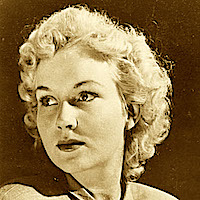
Carolyn Cassady
1923 – 2013 CE
Formal artist at 9 years old selling her first painting at 14, award winning set designer and head of make-up at 16, author, “grande dame of the Beat Generation,” founding member of the Academy of Parapsychology and Medicine, mother of 3 Neal Cassady children, and Jack Keroac love partner; Carolyn Cassady later regretted but divorced Neal launching him into further travels with Ken Kesey's band of Merry Pranksters (described in Electric Koolaid Acid Test) and his death in Mexico. Student of Erich Fromm, Dane Rudhyar, Edgar Cayce, and Peter Drucker; symbol in On the Road for integrity and goodness; muse for and character in the writings of Kerouac, Tom Wolfe, John Clellon Holmes, and Ken Kesey; portrayed by Kirsten Dunst and Sissy Spacek in movies; she took care of their children by herself when Neal spent 2 years in jail for a tiny amount of marijuana and worked to prevent young people from following in the self-destructive, Beat-imitating misunderstandings.
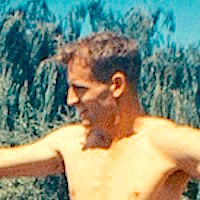
Neal Cassady
1926 – 1968 CE
Beat Generation generator, one of the most significant literary and pop-culture figures of the 20th century, the most famous Colorado native, pioneering stream-of-consciousness writer, reason for Kerouac and Ginsberg moving to Denver, (in)famous lover, inspiration for Bob Dylan and much of the 1960’s soundtrack; Neal Cassady is a little-known but deep influence on the best of today’s culture. Homeless son of an itinerant, alcoholic barber; stealer of more cars than any other person in Colorado’s history (500+ between ages 14 to 21); Cassady is immortalized in Grateful Dead songs, as Dean Moriarty in Kerouac’s On the Road, Cody Pomeray in Dharma Bums, the mad driver of Further in Wolfe’s Electric Kool-Aid Acid Test and most likely Randle McMurphy in Ken Kesey's novel, One Flew Over the Cuckoo's Nest.

Allen Ginsberg
1926 – 1997 CE
Eloquent instigator, figurehead and voice for the Beat Generation of the ’50s, the counterculture of the 60’s and the flowering of Buddhism in America during the 70’s and 80’s; Ginsberg symbolized a powerful influence against materialism, the military-industrial complex, and conformity. His poem "Howl” written during a time when homosexuality was a crime in every U.S. state was confiscated by police, seized by US Customs, and started a famous obscenity trial that led to more legal and cultural acceptance for the LGBT community. For decades, a powerful advocate for free speech, gay rights, and non-conformity; a tireless opponent and protestor against the Viet Nam War, the War on Drugs, imperialism, the failure to protect refugees, and persecution of minorities; at the request of his Tibetan teacher Chögyam Trungpa and along with Anne Waldman started The Jack Kerouac School of Disembodied Poetics.
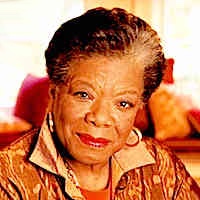
Maya Angelou
1928 – 2014 CE
From a background that included working as a nightclub dancer, fry cook and sex worker; Angelou climbed to becoming the first poet to recite for a Presidential inauguration since Robert Frost. She worked directly with Martin Luther King Jr., Malcolm X, and other Civil Rights leaders, received 50+ honorary degrees, dozens of literary awards, and the Presidential Medal of Freedom. An important spokesperson for women and black people, her books are both subject to bans in libraries as well as being extensively used in universities around the world. “America's most visible black woman autobiographer,” her books and poetry both defended and appreciated Black culture, became a powerful influence on modern hip-hop music, and helped further gender and racial understanding.
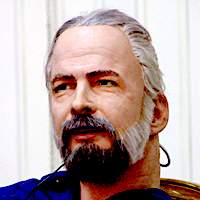
Philip K. Dick
1928 – 1982 CE
Legendary consciousness provocateur
The most influential science fiction writer of all time, garage philosopher/theologian, autodidact, the "Shakespeare of Science Fiction,” in his own words “a flipped-out freak,” and legendary consciousness provocateur; Dick was a serious student of the pre-Socratic philosophers, Plato, Meister Eckhart, Spinoza, Hegel, and Schopenhauer. He wrote 44+ novels, 120+ short stories and inspired most of the best sf films including Blade Runner, Total Recall, Minority Report, The Matrix, Being John Malkovich, Adaptation, Eternal Sunshine of the Spotless Mind, The Truman Show, Gattaca, 12 Monkeys, Fight Club, Vanilla Sky, Pi, Inception, and countless more. Devoted to his writing, during the 1950’s he said "We couldn't even pay the late fees on a library book" and during the 1960’s—because of an anti-Vietnam war pledge—the IRS confiscated his car. Always loved in the science fiction world but with a ”C” in Written Composition and ignored by mainstream literature; 25 years after his death, he became the first science fiction writer to be included in The Library of America series and his book Ubik was listed as one of the 100 greatest English language novels.
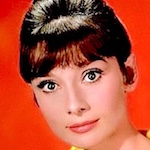
Audrey Hepburn
1929 – 1993 CE
She wasn’t that beautiful really, not sexy, an okay actress but not exceptional; what made Audrey Hepburn so popular was her deep goodness as a person. A wise and thoughtful humanitarian, she was active in the Dutch resistance during World War II, nominated for 7 Academy Awards, won twice and is one of only a few people who won Academy, Emmy, Grammy, and Tony Awards. She became the Goodwill Ambassador of UNICEF and devoted years working in some of the poorest communities of Africa, South America and Asia. Her movies continue to uplift, inspire, and improve the lives of millions of people.
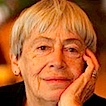
Ursula Le Guin
1929 – 2018 CE
At an early age, Le Guin saw her father making notes in an old book. In this way she discovered Lao Tzu who became a lifelong teacher and companion. Her father, a famous cultural anthropologist also exposed her to the native American shamanistic traditions. This led to a prolific and influential literary career with works translated into 31 languages and winning 21 Locus, 6 Nebula, 5 Hugo, a Newbery and World Fantasy, many “year's best” and other awards. Not just entertaining, these books challenged and positively shaped modern views on race, gender, society and the environment.
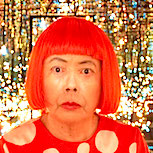
Yayoi Kusama 草間 彌生
1929 CE –
Yayoi Kusama 草間 彌生 (1929 - )
One of the Top 10 Living Artists, 2014’s most popular artist of the year, precursor and inspiration to Andy Warhol and the pop art movement, film writer/start, published novelist and poet named the most popular living artist; almost 90-year-old Yayoi Kusama set a record for a female artist when one of her works sold at Christie’s in New York for $5.1 million. During the counterculture’s 1960s, she organized a series of events that included naked, brightly painted withpolka dots participants. One of the world’s most important voices for the avant-garde, she has lived in a Japanese mental institution since 1973 creating hallucination-inspired “infinity nets” while organizing some of the world’s most popular art exhibitions. After creating art every day for over 70 years, she says she’s feeling “as creative as ever,” that “my mind is full of paintings,” and “I, Kusama, am the modern Alice in Wonderland.”
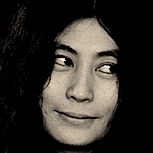
Yoko Ono 小野 洋子 (“Ocean Child”)
1933 CE –
The daughter of one of Japan’s richest banking clans in a long lineage of samurai warrior scholars; Yoko One fell from attending exclusive schools in New York and Japan to begging for food with all the family possessions in a wheelbarrow. A true, faithful life-artist, she collaborated with John Lennon’s public protests against the Viet Nam war, co-wrote ”Give Peace a Chance” inspired many famous songs, and was the only woman to sing a lead vocal on a Beatles’ recording. Continuing her life as “the world's most famous unknown artist,” she’s extended John Lennon’s legacy of political and social activism, philanthropy, and influence on world culture.
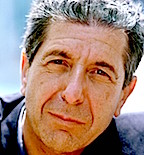
Leonard Cohen
1934 – 2016 CE
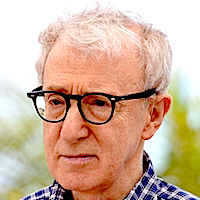
Woody Allen
1935 CE –
Woody Allen, Allan Stewart Konigsberg (1935 - )
Claustrophobic and agoraphobic “militant Freudian atheist,” stand-up comedian ranked third greatest of all time, musician, comedy writer, philosopher, filmmaker with 40+ films to his credit, playwright, and introspective social commentator; Woody Allen has maintained cultural relevance and survived the media spotlight for over 60 years winning 4 Academy Awards, 9 British Film Awards, and a motion picture voted highest on the Writers Guildlist of the "101 Funniest Screenplays." Known as an insecure, neurotic and intellectual nerd; he insists that those qualities are just another act and his real personality is quite different. Though controversial in many ways, he came up with some great quotes.
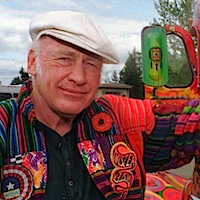
Ken Kesey
1935 – 2001 CE
Countercultural icon, Beat to Hippie era link, Grateful Dead mentor, and founder of the Merry Pranksters; Ken Kesey wrote one of the most influential books of the 20th century, One Flew Over the Cuckoo’s Nest. His life blended with his fiction and became a dramatic and entertaining story in itself as he explored the world of consciousness with the Merry Pranksters, evaded police trying to arrest him for marijuana possession, faked a suicide, went to jail, and finally settled down into a back-to-the-land lifestyle. A continual voice of authentic clarity; his essays, articles, and books brought insight and wisdom to the many cultural inequalities, dilemmas, and challenges of his time.
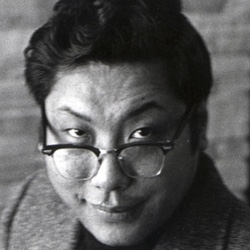
Chögyam Trungpa
1939 – 1987 CE
A once-in-a-generation kind of teacher, a mahasiddha for our times, a transducer transforming ancient wisdom into modern idiom. Per Allen Ginsberg, “A Renaissance man of the highest peaks of East, meditation emperor, space awareness Dance-master, witty rude calligrapher whose poetry and flower arrangements unite the Mind with Body… Prime Minister of Imagination… Chairman of the Board of Directors of Ordinary Mind.” Meditation master, scholar, teacher, poet, artist, he was honored as a mahasiddha by teachers like Khyentse Rinpoche and the 16th Karmapa. “The father of Tibetan Buddhism in the US,” his influence was and remains beyond words.

John Lennon
1940 – 1980 CE
Poet of our age, 20th Century social conscience, inscrutable, uncompromising, brave and outrageous; John Lennon personifies the Lao Tzu lineage and left a lasting and profound impact on the international evolution of consciousness. Uncompromising psychological prophet, he distilled and magnified both our dark side shadows and bright, golden age potentials. Reviled by the Nixon administration and investigated by the FBI, he’s now number 8 on the list of 100 Greatest Britons. Anthem writer for the counterculture and the anti-war movement, reviled by the Nixon administration and investigated by the FBI, he’s now number 8 on the list of 100 Greatest Britons.

Bob Dylan
1941 CE –
Though thought of in many different ways by different people, at heart, Bob Dylan may most essentially represent a modern-day Taoist sage, a continuation of Lao Tzu’s lineage. Awarded the Nobel Prize for Literature in 2016 and called the “Shakespeare of his generation,” he wrote over 500 songs recorded by more than 2000 singers and sold tens of millions of albums. Though world famous for decades and beyond “successful” in numerous ways, his humility and refusal to make a big deal out of himself remains. His music and message transcends his voice and culture. As relevant today as it was in the 60’s, it continues as a major influence on our cultural conscience and consciousness. And this influence shows all signs of continuing far into the future.
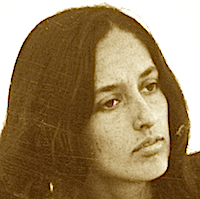
Joan Baez
1941 CE –
Famous but down-to-earth, proud but self-deprecating, a powerful speaker of truth to power; Joan Baez helped launch the civil rights and anti-war movements, social justice on multiple fronts including nonviolence, the environment, and human rights in general. A leader of the dynamic, counterculture social and political change of the sixties, she influenced the direction of American politics and world culture. For 60+ years, recording 30+ albums and songs in 8+ languages; her message of peace, compassion, and justice spread throughout the world both through her own direct example and through her relationship-with impact on people like Bob Dylan, David Harris, and Steve Jobs.
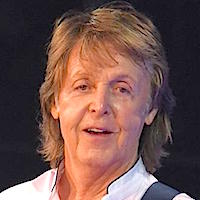
Paul McCartney (Sir James Paul McCartney)
1942 CE –
Described by Ringo star as "pleasantly insincere" and by John Lennon as “all pizza and fairytales,” McCartney sits on the more conservative and conventional side of the art world though this may have helped him avoid the early death pattern so common with famous rock stars. Knighted for his contribution to music and along with Lennon the most celebrated singer-songwriter of our times; McCartney wrote the best-selling Beatles single, "Hey Jude,” one of the most covered songs in modern music’s history, “Yesterday” (2,200+ versions), and wrote or co-wrote music for 60 gold records and 32 songs that became number one hits selling over 100 million singles and 100 million albums. Not stuck in only fame and fortune, he’s worked hard promoting animal rights, poverty alleviation, vegetarianism, and land mine charities.
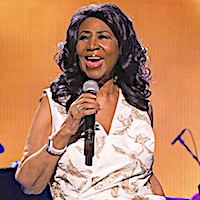
Aretha Franklin
1942 – 2018 CE
“Greatest Singer of All Time”
Dominant spirit of American music, Rolling Stone’s “Greatest Singer of All Time,” Queen of Soul, 1st Rock & Roll Hall of Fame woman singer, powerful and influential voice for Equal Rights and Social justice; Aretha Franklin’s legacy runs deep in both American and World culture. Beginning with her 1st album when only 14 years old, she went on to record 112 charted songs, 18 Grammys, and 17 top ten singles. Growing up and helping her famous father, mesmerizing preacher Rev. C.L. Franklin who recorded dozens of inspiring sermons treasured by blacks and creative spirits across the country, she knew and supported Martin Luther King from an early age. With a challenging life including having her first child when only 12 years old, her second when 14, a marriage filled with domestic violence, and her father being shot in his home at point blank range; her soul-empowering suffering continued in struggles with alcoholism, obesity, and various health issues. Not letting her tribulations stop her, she continued to spread her inspiration and was honored with degrees from Harvard, Princeton, Yale, Brown, and many other universities.
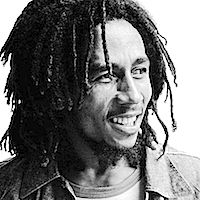
Bob Marley
1945 – 1981 CE
International hero of indigenous communities, one of the greatest song lyricists of all time, Rastafarian, father of at least 11 children with 7 mothers including Miss World Cindy Breakspeare, soccer crusader, and Pan-Africanist; Marley - in the lineage of Che Guevara, the Black Panthers, and Muhammad Ali - promoted political freedom, peace and justice. His song ”One Love" was named song of the millennium by the BBC: and, with sales of over 75 million records, he ranks as one of the world's best-selling artists. He used his spiritually infused music, global popularity, and concerts attended by up to 100,000 people to celescalate independence and justice for minorities, political focus on doing good instead of special interests, and marijuana as a sacrament, spiritual medicine, and catalyst for more wisdom. Awarded the Peace Medal of the Third World from the United Nations, at his funeral the Jamaican Prime Minister said, “Such a man cannot be erased from the mind. He is part of the collective consciousness of our nation” (and now of the world).
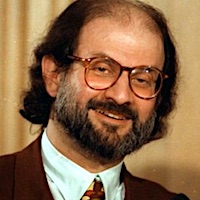
Salman Rushdie
1947 CE –
Fearless antagonist of Islamic fundamentalism
Prolific, award-winning, and fearless writer, Rushdie’s novels combine magical realism with historical fiction and concentrate on the interplays between Western and Eastern civilization. An antagonist of religious extremism and advocate for Islamic reform, his books were banned in many Muslim countries, he was put on an Al-Qaeda hit list, and the spiritual leader of Iran—Ayatollah Khomeini—issued a fatwā ordering his execution. When knighted on the English Queen’s birthday in 2007, mass demonstrations against him broke out in Malaysia and Pakistan while many Muslims campaigned publicly for his death. He supported Barack Obama’s election and the UK vote to stay in the EU, criticizes the Republican Party, champions ways to end racial discrimination, and actively supports feminism.
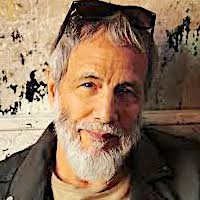
Cat Stevens (Steven Demetre Georgiou, Yusuf Islam)
1948 CE –
Singer-songwriter, musician, humanitarian, and brave artist dedicated to principle over fame and fortune; Cat Stevens had a Greek Orthodox father, a Baptist mother, went to a Catholic school, wrote an album based on a famous Zen teaching, converted to Islam and abandoned his musical career for 30 years. He used his music-derived wealth to promote Muslim philanthropic and educational causes and continues to help famine victims in Africa and thousands of orphans and families in the Balkans, Indonesia, and Iraq. Although always condemning terrorism and Islamic extremism, he was deported by Israel and ironically after the 9/11 attacks while on a tour with Dolly Parton promoting the song Peace Train; he was put on a US No-Fly list, briefly detained, and forced to fly back to the UK. Today he still continues his musical, philanthropic, and peace-making work.
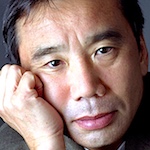
Haruki Murakami
1949 CE –
A “global” writer going beyond his time and culture to explore universal themes, Murakami takes his characters and readers into an inner dreamscape where they together look into the beyond thought world of imagery, perception, and consciousness. Grandson of a Buddhist priest and an Osaka merchant, he became both the most experimental and most popular Japanese novelist translated into English. Called a “voice of his generation,” his books create an allegorical world of magical realism and convey an understanding and appreciation for the vast sacredness of each moment.
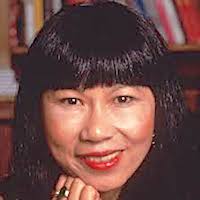
Amy Tan
1952 CE –
Rock and roll singer, bartender, and insightfully talented author
Rock and roll lead singer (in a band with Stephen King and Dave Barry), carhop, bartender, pizza maker, and insightfully talented author; Amy Tan has given the world memorable characters and a blended, wise view of world culture. A vivid example of how intense problems can transform into the evolution of goodness and wisdom, she had faced and transmuted challenges arising from a domineering, suicidal mother who once held a knife to her throat threatening to kill her, the murder of a college roommate, serious depression, and misdiagnosed Lyme disease that led to epileptic seizures. Exemplifying Einstein’s quote, “Great spirits have always encountered violent opposition from mediocre minds,” critics have accused her of perpetuating racial stereotypes, pandering to Western prejudices, and “casting Chinese men in the worst possible light.” If no negative reaction to a work of literature, it’s probably very insipid, meaningless, and not worth the time reading.
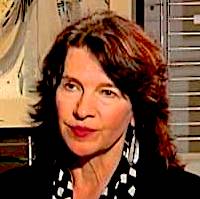
Louise Erdrich
1954 CE –
Chippewa wisdom-storyteller, poet, writer of 15 best-selling novels, Pulitzer Prize finalist, and World Fantasy Award winner; Louise was part of the first class of women admitted to Dartmouth College. A powerful voice for both Native American wisdom and rights, she refused an honorary doctorate from the University of North Dakota because of their Fighting Sioux mascot, wrote a novel about an historical lynching of four Native people based on trumped-up charges, hosts writers' workshops on the Turtle Mountain Indian Reservation, started and runs a “teaching bookstore” that also sells Native American jewelry, art and traditional medicines.
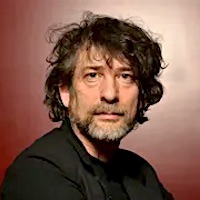
Neil Gaiman
1960 CE –
Myth-transmitting creative maelstrom
Creative cultural hero, inventive myth-making continuation, author and screen-writer par excellence; Neil Gaiman may be one of the most effective transmitters of ancient myths, symbolism and stories into modern culture. From comic books to television, from books to movies, from Twitter to FaceBook, his understanding of the basic dilemmas and opportunities facing our evolutionary potential seeps inextricably into contemporary zeitgeist. Winner of the Hugo, Bram Stoker, Nebula, Bram Stoker Newbery, Carnegie, and the British National Book Awards; his influence is huge and still growing.
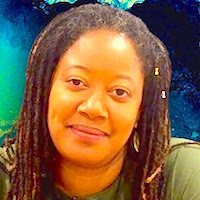
N. K. Jemisin
1972 CE –
Award winning speculative fiction writer, bimonthly column writer for The New York Times, fearless blogger, psychologist, and first black writer to win a Best Novel Hugo award; Jemisin helps mythologize current event themes in her fiction and carries these messages into the political and social worlds. Though arguably a stretch to include her in our Women of Wisdom Lineage, she’s still young and obviously on the way in that direction. Pointing out that 10% of the SFWA (Science Fiction and Fantasy Writers of America) members voted for alt-right writer Theodore Beale (Vox Day), she called him "a self-described misogynist, racist, anti-Semite, and a few other flavors of asshole” which led to him calling her an “ignorant savage" and his expulsion from the SFWA.
Related Sources (1 sources)
Creators: Heroes of the Imagination by Daniel J. Boorstin
Quotes about the Artists Lineage (25 quotes)

“He is the greatest artist who has embodied, in the sum of their works, the greatest number of the greatest ideas.”
Comments: Click to comment

“the great painters initiate us into a knowledge and love of the external world… our eyes are opened… their charm and wisdom coats our most modest moments by initiating us into the life of still life.”
Comments: Click to comment

“behold the world (which was not created once and for all, but rather as often as an original artist has appeared)... It will last until the next geological catastrophe loosed by a new original painter or original writer.”
Comments: Click to comment

“The revolt against individualism naturally calls artists severely to account, because the artist is of all men the most individual: those who were not have been long forgotten.”
Comments: Click to comment
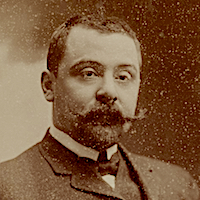
“The stamping out of the artist is one of the blind goals of every civilization.”
Comments: Click to comment
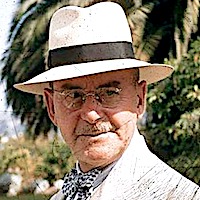
“An artist who has not a moral feeling for life is an impossibility... The artist is in reality the (ironical) mediator between the realms of death and life”
Comments: Click to comment
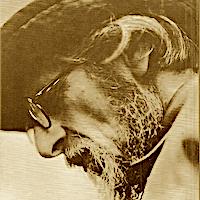
“It is not as if the artist were a special kind of person; every person is a special kind of artist.”
Comments: Click to comment

“The artist—like the God of creation—remains within or behind or beyond or above his handiwork, invisible, refined out of existence, indifferent, pairing his fingernails.”
Comments: Click to comment

“The great artist looks beneath the flux of everyday reality and sees eternal, unchanging symbols. Behind the spasmodic, frequently inconsistent activities of living men, he plainly distinguishes the great currents which sweep away the human soul. The great artist considers realistic representation a disfigurement and caricature of the eternal.”
Comments: Click to comment

“Usually a supreme artist is the culmination of a tradition [and] his very superiority fulfills and exhausts development so that after him must come a period of helpless imitation and decline. Then slowly a new tradition grows...”
Comments: Click to comment
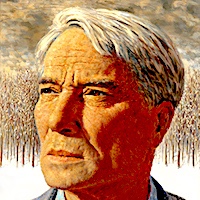
“Don't sleep, don't sleep, artist,
Don't give in to sleep.
You are eternity's hostage
A captive of time.”
Comments: Click to comment

“Struggle is the most invaluable experience of all. Suffering seems to be the inevitable fate of the creative sensitive types. Poverty, disease, death, unrequited love affairs, and disappointments of every sort fan the flame of the artistic spirit. The greatest works of art were not created by spoiled brats. They were born for the most part out of a sense of despair, and if not despair then just plain hard work. Somewhere along the line the artist learns the art of transformation.”
Comments: Click to comment

“The greatest artist is one who expresses what is felt by everybody.”
Comments: Click to comment
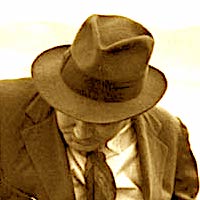
“This is the artist, then - life's hungry man, the glutton of eternity, beauty's miser, glory's slave.”
Comments: Click to comment
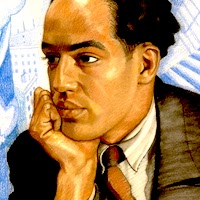
“An artist must be free to choose what he does, certainly, but he must also never be afraid to do what he might choose.”
Comments: Click to comment
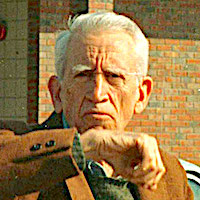
“The true artist-seer, the heavenly fool who can and does produce beauty, is mainly dazzled to death by his own scruples, the blinding shapes and colors of his own sacred human conscience.”
Comments: Click to comment

“It reflected light. Fire. Not heavy and weary, but pulsing with life—the high realm aspect of yang: empyrean, ethereal. That is the artist’s job: taking mineral rock from dark silent earth and transforming it into a shining light reflecting from from sky.”
Comments: Click to comment
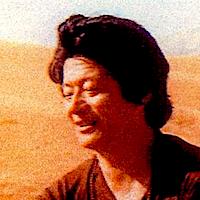
“Ordinary artists express themselves for fame, fortune, or power. They only make art which becomes a master controlling them. Artists must go beyond outward, obvious expressions and experience the subtle, inner elements; the source of the outer, gross elements. Then they can make art which reflects what people need.”
Comments: Click to comment
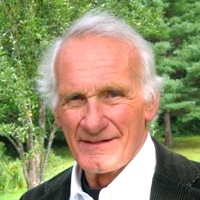
“societies become acutely dependent on their artists... the storytellers, the inventors, sculptors, poets, any original thinkers whatsoever... a society without culture would be too drab and lifeless to be endured.”
Comments: Click to comment
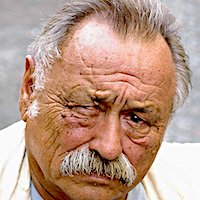
“All artists as a type seem to suffer a great deal, but then so do miners.”
Comments: Click to comment
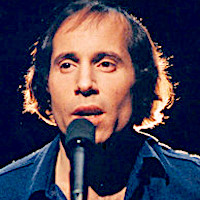
“I suppose an artist takes the elements of his life and rearranges them and then has them perceived by others as though they were the elements of their lives.”
Comments: Click to comment
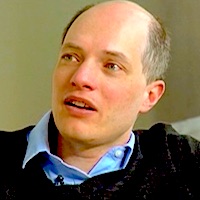
“However brilliant, however wise the work, it seems that the lives of artists can be relied upon to exhibit an extraordinary, incongruous range of turmoil, misery, and stupidity.”
Comments: Click to comment
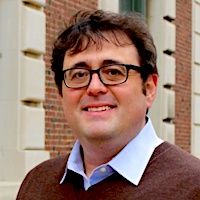
“The image of James taking a bow to the jeers and catcalls of the audience has become one of the primal scenes of modernism, and James is revered as the Master partly because of his willingness to wager everything—popularity, fortune, happiness, life—on his vision of artistic perfection”
Comments: Click to comment
Comments (0)